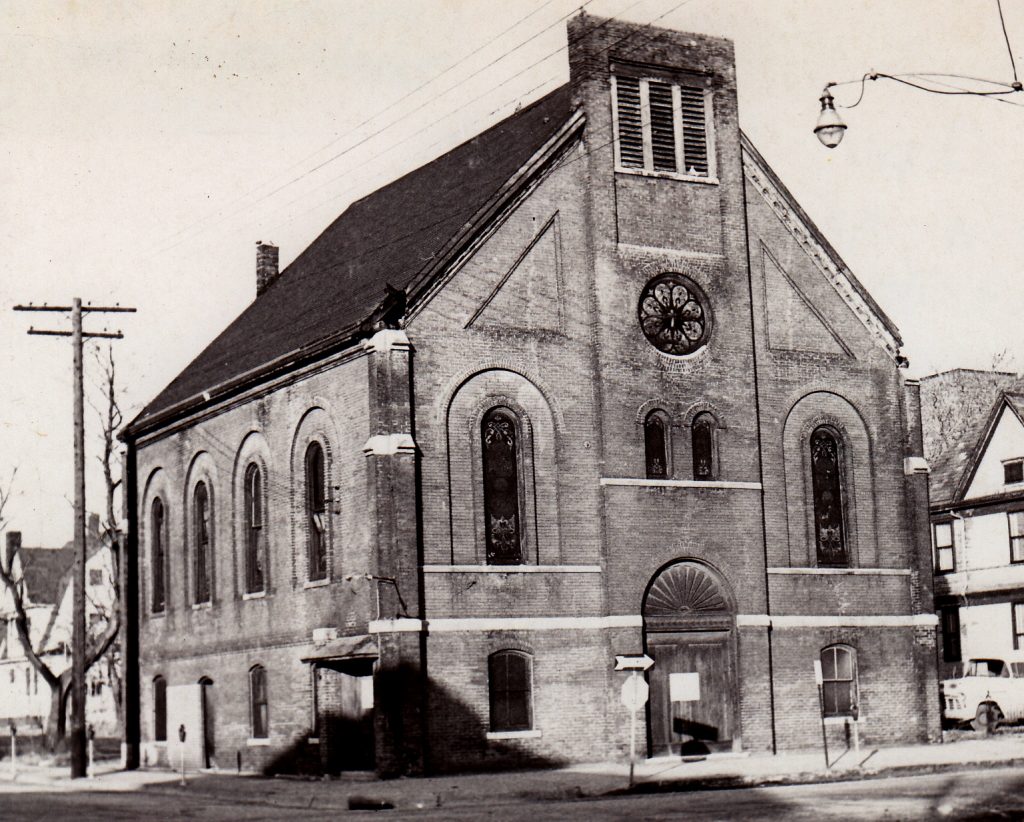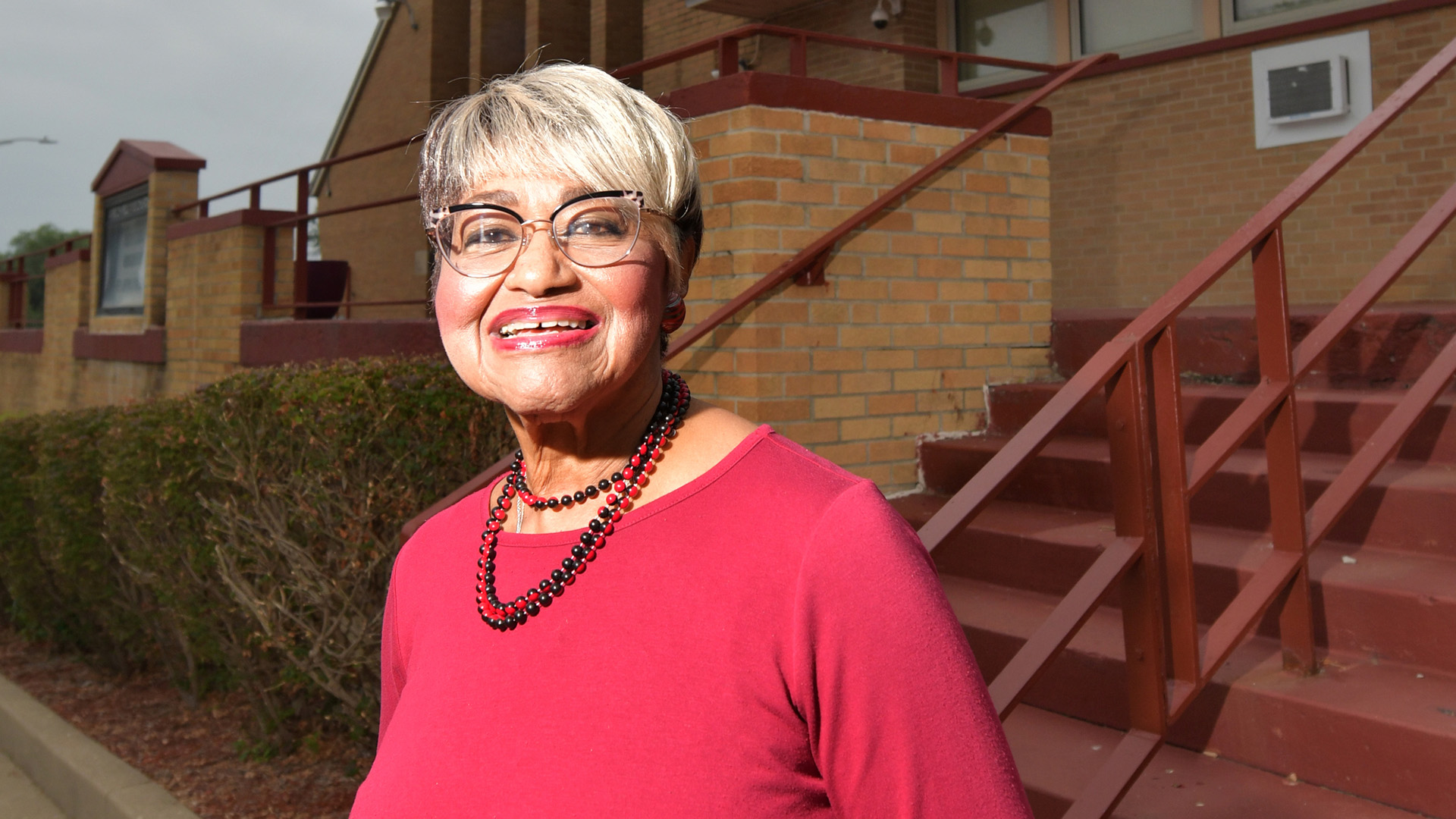From an act of discrimination, the African Methodist Episcopal Church was born, and it made its way to Peoria
Two black men kneeling in prayer one Sunday morning in 1791 or ‘92 were pulled off their knees by white church officials for genuflecting at the wrong seats.
Richard Allen, Absalom Jones and William White, all three free Black men, arrived at St. George’s Methodist Episcopal Church in Philadelphia expecting to sit in their usual segregated seats against the wall on the main floor. Instead, they were directed to sit in the balcony.
Just as the men got to upstairs seats, the elder said “let us pray” and they got on their knees. They had not been kneeling for long when a white trustee pulled at Jones to get off his knees, saying “you must get up. You must not kneel here.” Jones twice asked the trustee to wait until the prayer was over, but the trustee would not relent, instead summoning a second trustee who arrived, forcing White from his knees, as well.
In his memoir, Allen wrote: “By this time, prayer was over and we all went out of the church in a body and they were no more plagued with us in the church.”
Allen and Jones decided that their piety and their dignity demanded that Black worshippers be given the respect due all of God’s children.
That aggression in church sent Allen and Jones on journeys that put each of them in the history books.
Jones led a congregation to become the African Episcopal Church of St. Thomas, which was the first Black Episcopal Church in America. He was ordained as the first Black Episcopal priest in the nation.
Allen founded Bethel Church in Philadelphia as a Methodist congregation. Looking to break away from the Methodist Church, he called on other Black churches from nearby states to form a new denomination. In 1816, the African Methodist Episcopal (A.M.E.) Church was established.
The name is a bit cumbersome, so to break it down, the word Africa in the name refers to the church being organized by people of African descent. Methodist states the faith is doctrinally Methodist. Episcopal means “governed by bishops.”
Today the A.M.E. Church is a global denomination, with members in 20 Episcopal districts in 39 countries on five continents. The membership is estimated by the World Council of Churches to be 2.5 million.

A.M.E. Comes to Peoria
Ward Chapel is the lone African Methodist Church in the Peoria area, located at 511 Richard Allen Drive, and is believed to be the oldest Black church in the area.
In 1846, Rev. Phillip Ward of Bloomington started the A.M.E. Church in Peoria with nine founding members. Initially the church met in private homes.
famous African Americans who have spoken there were Frederick Douglass and Booker T. Washington
One of the earliest known locations of the Ward Chapel A.M.E. church was 409 Chestnut St., now known as State Street in Downtown Peoria. This location also became the first school for Black children in Peoria.
In 1867, the congregation purchased the German Methodist Church at Fifth and Monson streets. That church was torn down in 1887, making way for a new Ward A.M.E. church, built at a cost of $6,000. It remained the home of Ward Chapel A.M.E. until the current church opened in 1956.
The richest of histories, a reputation for service
The Rev. Adrian Johnson was the most recent pastor at Ward Chapel, serving there for seven years. In August, she was named presiding elder of the South District of the Illinois Annual Conference.
In the interim, until a new pastor can be named, the Rev. Elaine Gordon is serving as pastor. Gordon was Ward Chapel’s first female leader, serving prior to Johnson.
Attendance at Ward Chapel is 99% Black. Prior to the pandemic, Ward’s average weekly service attendance was about 80. Those numbers have been down.
Through its Women’s Missionary Society, Ward Chapel runs a canned food drive, gathering donations for Crittenton Centers, and also coordinates visits to soothe the sick and nursing home residents.
“Saturday hot breakfast stopped during the pandemic, but their goal is to restart that,” said Johnson. “I’m sure it’ll take off. They serve 100 hot plates every Saturday. Many of the homeless population and those oppressed by drug and alcohol abuse come for the breakfast.”
What separates Ward Chapel A.M.E. Church from other congregations, said Johnson, “is our history.” Reportedly among the famous African Americans who have spoken there were Frederick Douglass and Booker T. Washington.
With consecutive female pastors at Ward Chapel, the A.M.E. Church obviously has no objection to ordaining women. “A.M.E. requires you to have a master’s of divinity (degree) to be a lead pastor and more and more women are doing that. It’s pretty exciting.”
Cecilia Jordan, 84, was baptized in Ward Chapel A.M.E. Church when it was located in the brick-and-stone building at Fifth and Monson.
She remembers the excitement of the new church opening. “When we moved into the new church, the whole congregation walked from the old Ward Chapel down to the new building,” she said.
Growing up as Cecilia Jones, she had a brother, two sisters and a couple of very strict parents. “My brother could do anything, but us girls had to walk the chalk,” she said. “We couldn’t date, except group dating, which for us meant walking to church and back.”
During Jordan’s youth, the music at Ward Chapel went through a change. “In the old days, the choir sang only anthems and hymns. They didn’t sing gospel. Gospel was for Baptists, not for the A.M.E.,” she said. Eventually, one of the pastors got a gospel choir established, though the senior choir, with its anthems and hymns, remained the primary attraction.
“The A.M.E.s, we had a reputation of being businessmen and people that were educated,” said Jordan. “When you came to Ward Chapel, you wore your very best … hats and gloves. No pants for women or girls.
“There was a hat shop on Fulton between Jefferson and Adams where we’d shop. The gloves had to match the hats.”
The demeanor of Ward Chapel members was very staid during her childhood, said Jordan. “You didn’t jump up and clap your hands or get up like we do now. That was the Baptists who did that, not Ward Chapel. Now, if you feel like standing, because the spirit hit you, just stand up.
“We had the reputation of being kind of snooty. We had the reputation if you go to Ward Chapel, you better not even say ‘Amen.’
“The way it is now is not the way we started out,” said Jordan. “The A.M.E. now is not like the A.M.E. I grew up with.”





